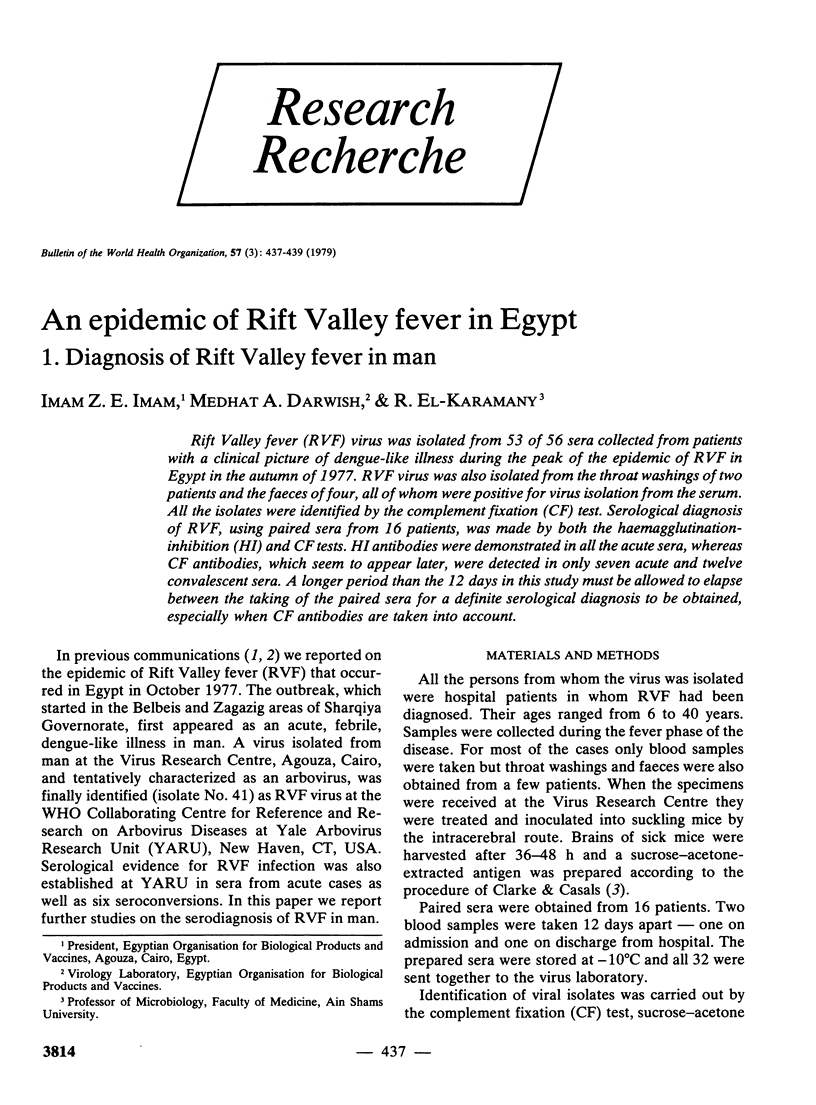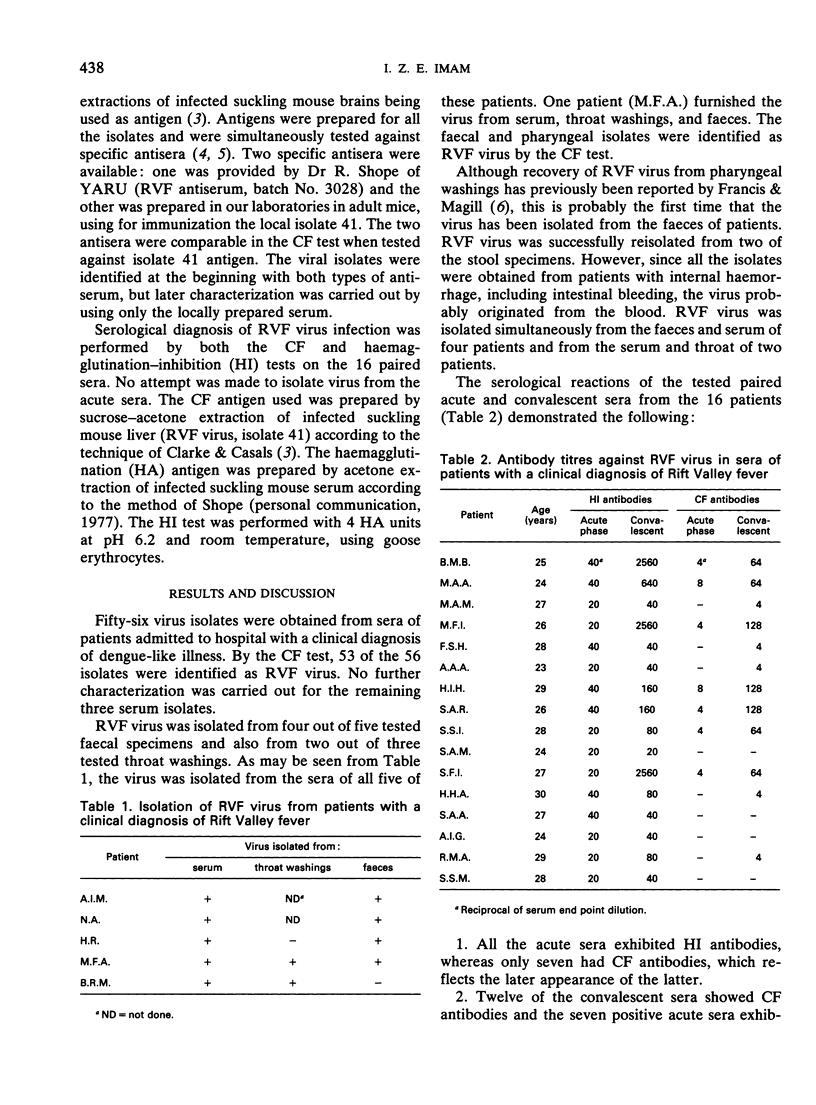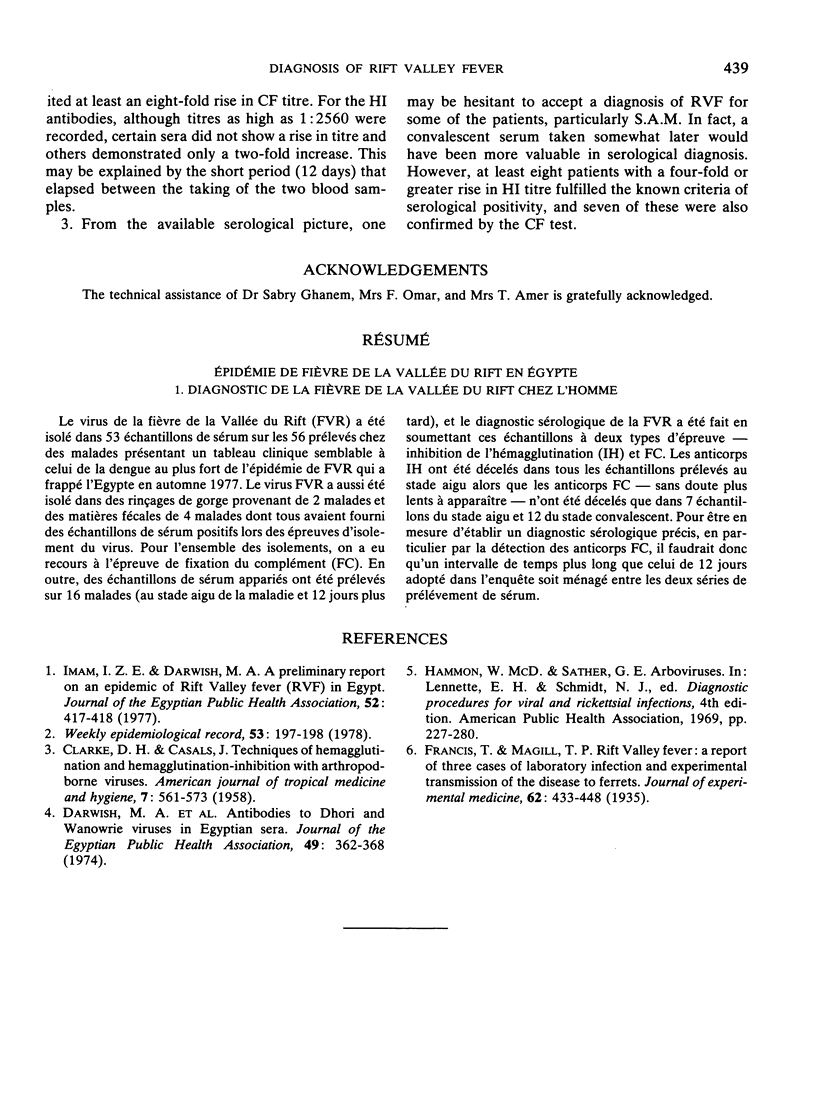Abstract
Rift Valley fever (RVF) virus was isolated from 53 of 56 sera collected from patients with a clinical picture of dengue-like illness during the peak of the epidemic of RVF in Egypt in the autumn of 1977. RVF virus was also isolated from the throat washings of two patients and the faeces of four, all of whom were positive for virus isolation from the serum. All the isolates were identified by the complement fixation (CF) test. Serological diagnosis of RVF, using paired sera from 16 patients, was made by both the haemagglutination-inhibition (HI) and CF tests. HI antibodies were demonstrated in all the acute sera, whereas CF antibodies, which seem to appear later, were detected in only seven acute and twelve convalescent sera. A longer period than the 12 days in this study must be allowed to elapse between the taking of the paired sera for a definite serological diagnosis to be obtained, especially when CF antibodies are taken into account.
Full text
PDF


Selected References
These references are in PubMed. This may not be the complete list of references from this article.
- Francis T., Magill T. P. RIFT VALLEY FEVER : A REPORT OF THREE CASES OF LABORATORY INFECTION AND THE EXPERIMENTAL TRANSMISSION OF THE DISEASE TO FERRETS. J Exp Med. 1935 Aug 31;62(3):433–448. doi: 10.1084/jem.62.3.433. [DOI] [PMC free article] [PubMed] [Google Scholar]
- Imam I. Z., Darwish M. A. A preliminary report on an epidemic of Rift Valley Fever (RVF) in Egypt. J Egypt Public Health Assoc. 1977;52(6):417–418. [PubMed] [Google Scholar]



